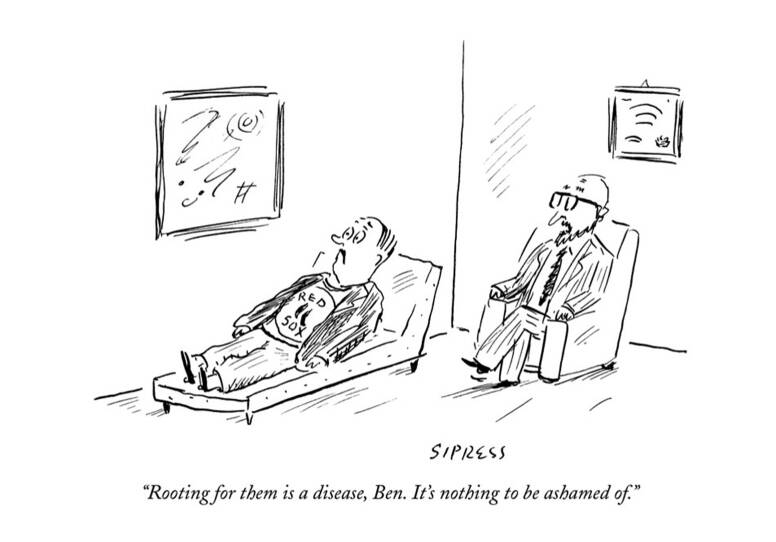Before David Sipress achieved his childhood dream and published more than 700 cartoons for The New Yorker, he was published regularly in the Boston Phoenix. That journey is featured in his new memoir, “What’s So Funny?” and he joined Morning Edition hosts Paris Alston and Jeremy Siegel to talk about his career.
His love of cartooning started young when he would cut out his own cartoons and tape them over existing cartoons in issues of his parents’ magazines.
“My parents got The New Yorker when I was a kid and I was fascinated with the cartoons, and what I loved about them was that they looked easy to do,” he said.
More Music & Culture
Years later, as a graduate student in Soviet studies at Harvard, he realized that he would have to drop out to pursue his dream.
“I wanted to be a cartoonist, but I never could really step across that threshold until I revealed that to my father,” he said. “And that was a very difficult moment, almost destroyed me, but I got through it and the rest is history.”
After dropping out, he sold his pieces in Harvard Square for 10 cents each.
“The wonderful thing I realized about deciding that I was going to be a cartoonist was unlike anything else I had ever done — I had a pad, I had a pen and some ideas as a cartoonist, and so I became one very quickly just by having those items,” he said.
He met someone who worked for Broadside, Boston’s first alternative paper, then he went on to Boston After Dark, which later became the Boston Phoenix.
“To my amazement, I walked in, they looked at my stuff, they said, ‘You're in.’ And so for the next 30-odd years, I was in the Boston Phenix every week,” he said.

His time in Boston left an impact — even if it didn’t turn him into a Red Sox fan. At the beginning of his career at The New Yorker, he created a cartoon depicting man wearing a Red Sox t-shirt at a psychiatrist’s office, as he says to the patient, “Rooting for them is a disease, Ben. It’s nothing to be ashamed of.”
“This was before the Red Sox were the fabulous team they are now,” Sipress said.
Nevertheless, one day his phone rang and it was the personal secretary of Larry Lucchino, the Red Sox CEO, inviting him to sit in his box at a game in Boston. He replied after a long silence, “That is so ironic because I’m actually a huge Yankees fan.”
“Another long silence and ‘we’ll have to get back to you,’” he heard. “That’s the last I heard.”
At the end of the interview, Siegel noted that Sipress’ father emigrated to the United States from Ukraine as a child, and asked how he is thinking about Russia’s invasion of the country as a cartoonist and someone with roots there.
“I will say that I'm not making any jokes about it right now because it's going to take time for me to process that and for the world to be ready for humor about it. That'll be a long time from now,” Sipress said.
“But when I do cartoons about those sorts of things, I don't ever go at them head-on,” he continued. “I try to make jokes about how we feel about what's going on, about our reactions, not about the thing itself. And if I ever do get to do anything about it, that's probably the path that I'll take.”










